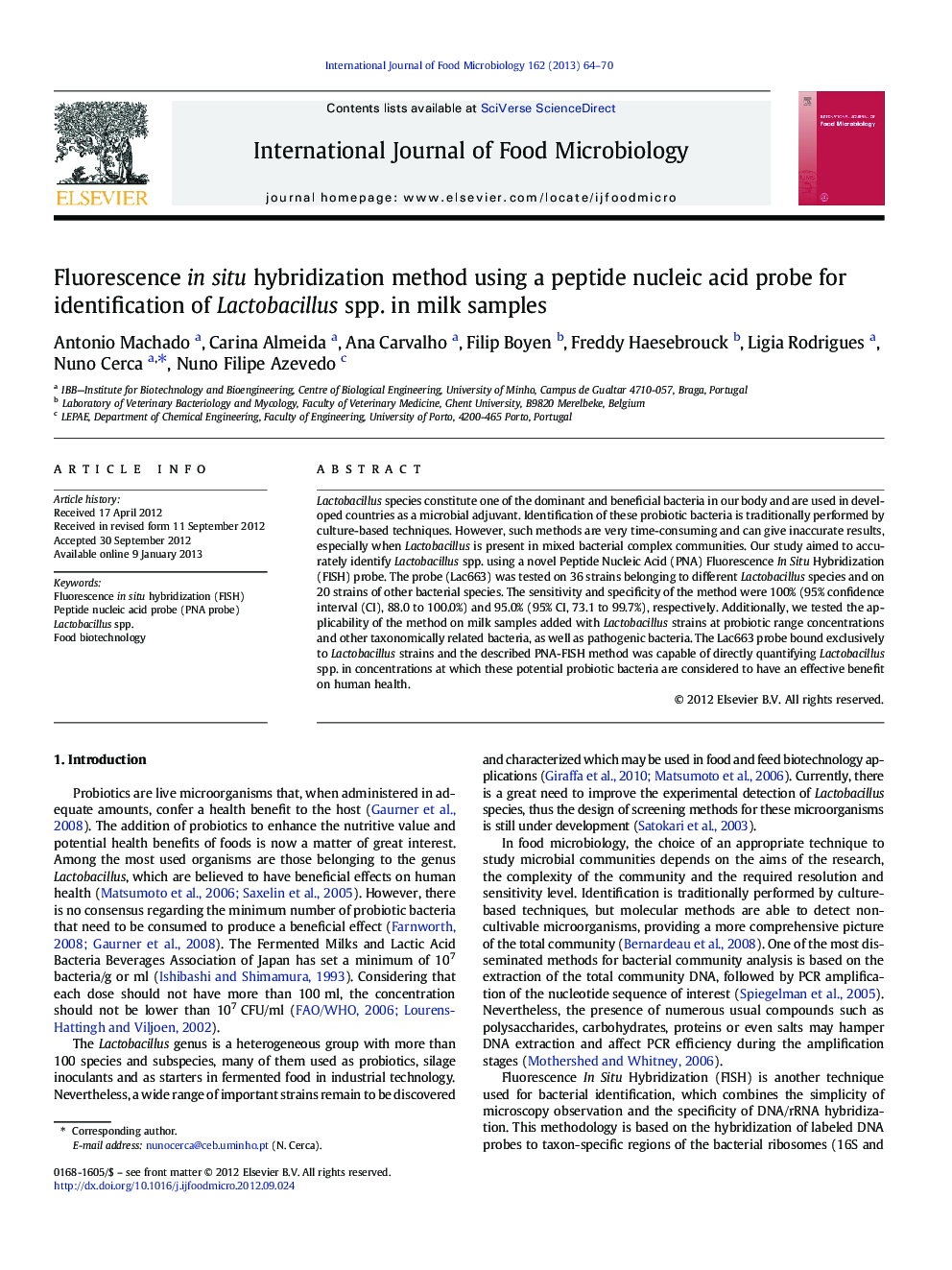| Article ID | Journal | Published Year | Pages | File Type |
|---|---|---|---|---|
| 4367238 | International Journal of Food Microbiology | 2013 | 7 Pages |
Lactobacillus species constitute one of the dominant and beneficial bacteria in our body and are used in developed countries as a microbial adjuvant. Identification of these probiotic bacteria is traditionally performed by culture-based techniques. However, such methods are very time-consuming and can give inaccurate results, especially when Lactobacillus is present in mixed bacterial complex communities. Our study aimed to accurately identify Lactobacillus spp. using a novel Peptide Nucleic Acid (PNA) Fluorescence In Situ Hybridization (FISH) probe. The probe (Lac663) was tested on 36 strains belonging to different Lactobacillus species and on 20 strains of other bacterial species. The sensitivity and specificity of the method were 100% (95% confidence interval (CI), 88.0 to 100.0%) and 95.0% (95% CI, 73.1 to 99.7%), respectively. Additionally, we tested the applicability of the method on milk samples added with Lactobacillus strains at probiotic range concentrations and other taxonomically related bacteria, as well as pathogenic bacteria. The Lac663 probe bound exclusively to Lactobacillus strains and the described PNA-FISH method was capable of directly quantifying Lactobacillus spp. in concentrations at which these potential probiotic bacteria are considered to have an effective benefit on human health.
► We design a novel PNA-FISH probe for the detection of Lactobacillus spp. ► We compared in silico our probe with others described in the literature. ► The theoretical advantage of our probe was confirmed in vitro, using 56 strains. ► The probe presented high specificity and sensitivity. ► This method could be used to detect Lactobacillus spp. in fresh milk samples.
